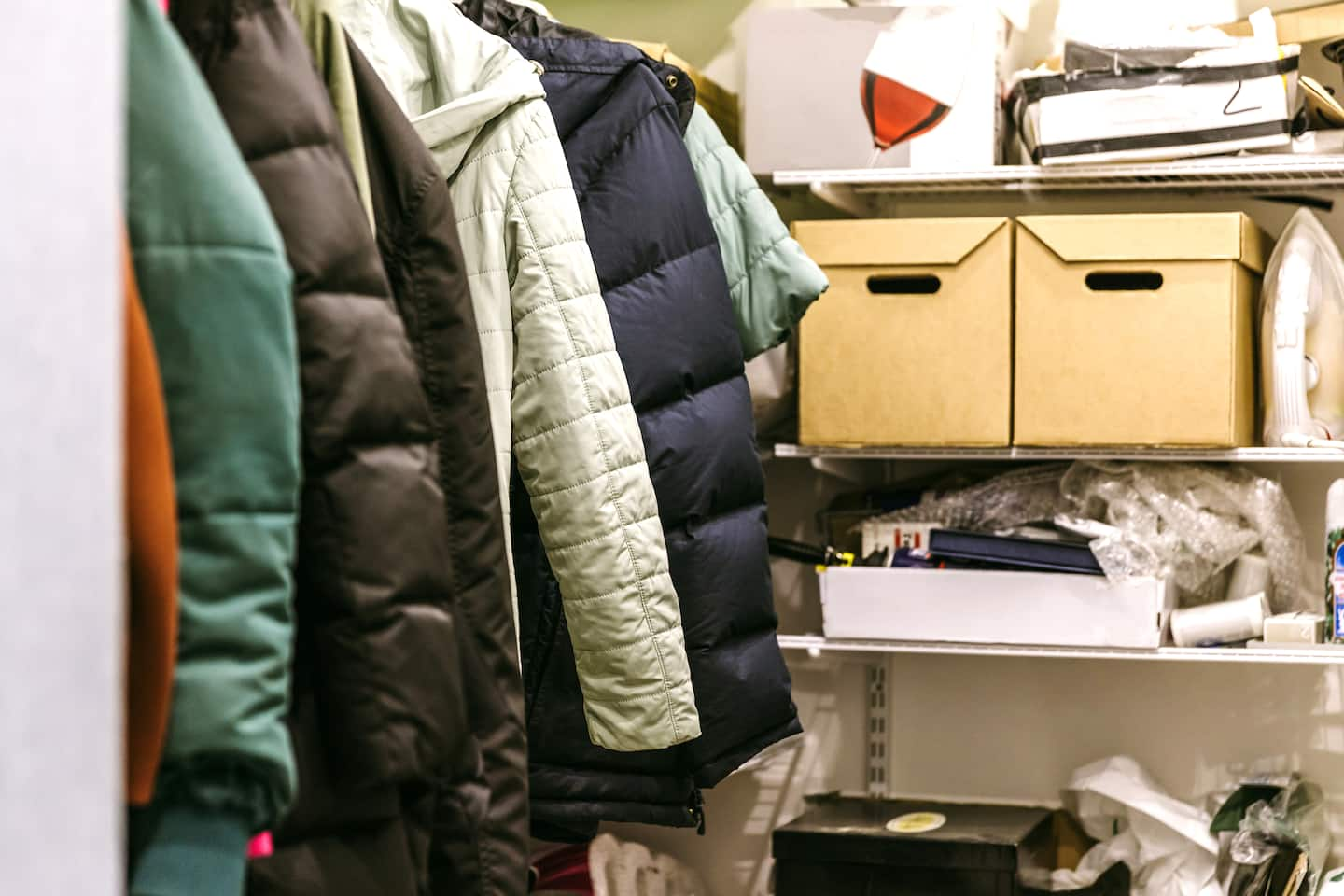Why I can’t throw things out

Whatever the impetus, your time will come.
Mine came more than 10 years ago when we moved to the Washington area from New Jersey and a house we had lived in for 30 years. We had no idea what kind of abode we were heading toward nor how much storage space there would be. “Pruning” radically was a necessity. I learned a few things in that process.
For instance, I don’t really collect books anymore. Currently, I read on a Kindle app or listen to audiobooks. But I notice now as I peruse my book shelves in my new home after all my pruning, I kept some prized college textbooks: books from courses on philosophy, history, literature, even very outdated psychology texts. We are talking here about textbooks from the 1960s! I probably will never look at them again. But there they rest, on the uppermost, unreachable shelf of the bookcase. I should donate them to the used bookstore down the block. But I can’t. I just can’t.
I look from the bookshelves to the wall unit holding two — not one, but two — turntables. Entirely serviceable turntables but with absolutely no real function. The vinyl that I accumulated over my adult life are safely boxed away in the storage room. I can’t imagine a circumstance in which I will ever unbox them again.
Within the same room as the bookshelves is a small collection of children’s toys for the use of my grandchildren. There are toys that they still play with, but a few are baby toys and are not of any use to the elementary-school-aged children who play in this room. These, too, are not easily discarded. But most adhesive is the musical mobile that hung above the crib of my two babies more than 40 years ago. Safely tucked away in a closet, neither of my daughters considered this a prized heirloom when they had their own babies. Even though the music box still works.
So having written about the developmental stage in which acquiring is no longer the compulsion, but rather divesting, I find myself caught in a contradiction. I no longer collect stuff. I am mostly motivated to lighten the load of my possessions. I am no hoarder. But there are certain items that cling stubbornly to the shelves, the drawers, the storage room, despite the fact they have absolutely no function in my life or the life of my family any more.
So here comes my rationale, or my insight, depending on your point of view. Each item described is the legacy of a time in my life that I treasure — a bookmark of an important, maybe joyous, maybe challenging era that holds some of the energy of that time. Memory keepers that I can’t let go of quite yet. My textbooks are infused with the energy of my youth and the intellectual excitement of that era. The baby toys vibrate with the joy of those early years of grandparenthood. The crib carousel … well, that one is obvious.
The turntables and the vinyl “record” — a time when the music lived in my dorm or my off-campus housing. As an adult with growing children, the melodies were piped throughout the house and accompanied preparations for dinners and holidays. I think my adult daughters now use Spotify and Alexa similarly in their households.
Then there are the bicycles hanging on the wall of the garage. Three of them. Neither my husband nor I ride our bikes anymore. Nor have we for a few years. But there was a time when we went on long rides, once for a week in Provence, France. I have balance problems now and visual difficulties, and it is highly unlikely I will mount my blue Specialized racing bike again, the one with the very cool skinny tires. I always felt so free, so unfettered, so very cool riding that bike, even in my early 70s. That bike was like a brother. It hurts my chest just thinking about selling it or giving it away. Or giving up on it.
So I hold on to these markers of years past, stages of life long gone.
There are three principles of the Buddhist world view to which I aspire: the path to peace of mind lies in residing as much as possible in the present moment, the practice of “letting go” of extraneous thought in meditation practice to focus the mind, and most importantly, knowing that all is impermanent, ever changing: nothing stays — except for impermanence. Obviously, for me this is all a work in progress.






